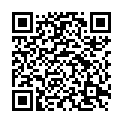|
|
|
| Module code: MBG21-13 |
|
|
3V+3S (6 hours per week) |
|
7 |
| Semester: 3 |
| Mandatory course: yes |
Language of instruction:
German |
Assessment:
Exam achievement
[updated 15.11.2021]
|
MBG21-13 (P311-0186) Management and Professional Pedagogy in Health Care, Bachelor, ASPO 01.10.2021
, semester 3, mandatory course
|
90 class hours (= 67.5 clock hours) over a 15-week period.
The total student study time is 210 hours (equivalent to 7 ECTS credits).
There are therefore 142.5 hours available for class preparation and follow-up work and exam preparation.
|
Recommended prerequisites (modules):
MBG21-1 Academic Methodologies and Study Skills I
MBG21-5 Healthcare Management I
[updated 12.10.2023]
|
Recommended as prerequisite for:
MBG21-17 Health Care Management IV
MBG21.M.41 Management in Hospitals
MBG21.M.42 Management of Inpatient and Outpatient Facilities
MBG21.M.43 Change Management
MBG21.M.44 Risk Management
[updated 30.05.2024]
|
Module coordinator:
Prof. PhD Petra Riemer-Hommel |
Lecturer:
Prof. PhD Petra Riemer-Hommel
[updated 12.10.2023]
|
Learning outcomes:
Strategic Organization
After successfully completing this module, students will have the following skills and competencies:
Knowledge and Comprehension:
Students will be familiar with the basic concepts of organization.
Students will be able to differentiate between the most well known organizational theoretical approaches.
Students will be able to name and apply the various structuring principles.
Students will be able to describe the effects of economic coordination mechanisms.
Students will be able to acknowledge the importance of organizational design as an essential element in the management process.
The Use, Application, and Generation of Knowledge:
Students will have developed an understanding of the behavior-shaping power of organizational regulations in everyday work.
Students will have developed a critical understanding of the limitations and possibilities of organizational theory approaches in dealing with practical problems.
Communication and Cooperation:
Students will be able to take different perspectives into account in organizational design and involve participating professional groups in organizational design processes.
Students will be able to actively participate in discourse in a group and contribute constructively to the group’s learning process.
Scientific Self-Concept/Professionalism:
Students will be able to reflect upon social, societal and ecological implications.
Marketing
After successfully completing this module, students will have the following skills and competencies:
Knowledge and Comprehension:
Students will be familiar with the theoretical basics, tasks and methods of marketing.
Students will be able to formulate goals and develop strategies for marketing campaigns.
Students will be familiar with the legal particularities of marketing in the health care sector.
Students will recognize the importance of marketing for the success of companies providing services.
Students will be able to examine economic, social and ethical areas of conflict in a critical manner.
The Use, Application, and Generation of Knowledge:
Students will have developed a critical understanding of the legal dimensions of health care marketing.
Students will be able to use their knowledge for the conceptual design of marketing measures.
Communication and Cooperation:
Students can reflect upon and take into account the different views and perspectives of relevant stakeholders.
Scientific Self-Concept/Professionalism:
Students will have a critical attitude towards the possibilities and limits of informational influence in health care.
Strategic Organization
[updated 15.11.2021]
|
Module content:
The basics
Forms of organization
Principles of structuring
Organizational theoretical approaches (scientific management, administrative approaches, human relations approach, situational approach, institutional economics)
Coordination mechanisms
Practical examples
Marketing
Marketing basics, tasks and methods
Developing strategies and implementing marketing measures
Marketing in the service sector
Legal provisions on marketing in the health care sector
Practical application of marketing in the health care sector
[updated 15.11.2021]
|
Teaching methods/Media:
Blended learning
[updated 15.11.2021]
|
Recommended or required reading:
Recommended literature will be announced at the beginning of the course.
[updated 15.11.2021]
|

